PlaceCity Symposium
Placemaking as a Tool for Urban Regeneration
In the framework of PlaceCity, a project funded by JPI Urban Europe, we are eager to explore the potential of placemaking as a tool for urban regeneration. Specially, in times of COVID-19 we are asking how we can extend public spaces in need to enjoy our cities better. Does placemaking as tool contribute towards a more caring and resilient urban future?
The PlaceCity Symposium spans two online days, June 30th from 14 – 16 CEST and July 1st from 14 -16 CEST, and one offline day, 2nd July from 14:00 to 15:30 CET.
The invited speakers will be reflect on the COVID-19 measures in Vienna, showcasing the Viennese COVID-19 projects. Furthermore, we will have also have input from specialists from Oslo, Barcelona, Lisbon, Turin, Milan, London, Buenos Aires and Miami, among other places.
ONLINE:
We will first reflect on different responses given by cities among the world facing COVID-19. We will continue exploring the possibilities and limitations we need to address through the experiences of different cities, to achieve a shift stand on collaboration and placemaking.
Local placemaking projects – including PlaceCity Vienna and Oslo (https://placemaking-europe.eu/placecity/) – will be showcased and contextualized with international placemakers, planners, civil servants, city administration, among others.
PLEASE REGISTER ONLINE
OFFLINE:
We invite you to take part in our explorative walk in Vienna Leopoldstadt! We will explore different examples of Covid-19 responses and discussing their potential to be implemented on a long term. The walk will start at Danube channel / Praterstraße and will end at the urban development area Nordbahnviertel.
This event is hosted by Superwien Urbanism Vienna, in cooperation with Placemaking Europe, Eutropian and other PlaceCity partners.
About PlaceCity Oslo and Vienna:
PlaceCity is a research applied project that aims to advance placemaking as a new approach to creating better cities together by gathering placemaking tools and implement those tools in the partners cities. The aim is not merely to test the tools but also to establish sustainable business cases for placemaking in local contexts. To achieve this the project partners work together with a combination of local partners (cities, communities, businesses) as well as partners at a higher level (knowledge partners, governments etc).
The consortium aims also develop the NGO “Placemaking Europe” as a knowledge platform with direct connection to the implementation.
Project partners of PlaceCity are City of Vienna, City of Olso, superwien urbanism ZT OG, University of Applied Arts Vienna – Social Design, Stipo, Gallis Miljø og Kommunikasjon – Nabolagshager, BIDs Belgium, Placemaking Europe and Eutropian GmbH (project coordination).
PlaceCity is funded by JPI Urban Europe, Federal Ministry of Transport, Innovation and Technology and The Research Council of Norway.
Read more about Placemaking for sustainable, thriving Cities.
EXPLORATIVE WALK IN VIENNA
Leopoldstadt at Eye-Level: Placemaking as tool for urban regeneration
In May 2020 – when Covid-19 has already hit Austria and many people were still at home during the lockdown – the local government in Vienna took several astonishing decisions: one of them was the temporary bike lane that was implemented on Praterstrasse in Leopoldstadt.
The need is obvious because even more people are switching to bicycles, especially during the Corona Crisis. The City of Vienna took this into account and created the bike lanes and introduced numerous temporary shared spaces. But Vienna’s 2nd district has a lot to offer in terms of sustainable urban development. This is the reason for the explorative urbanistic walk that will lead from the temporary pop-up bike lanes to the new urban development area of the former Vienna North Station, currently the biggest brownfield conversion project in Vienna. We will visit the district’s most emblematic placemaking projects that offer a great variety of topics from mobility to public space creation and place-led development.
Today, Leopoldstadt’s urban development projects serve as a role model for other districts in the city.
Learn more here:
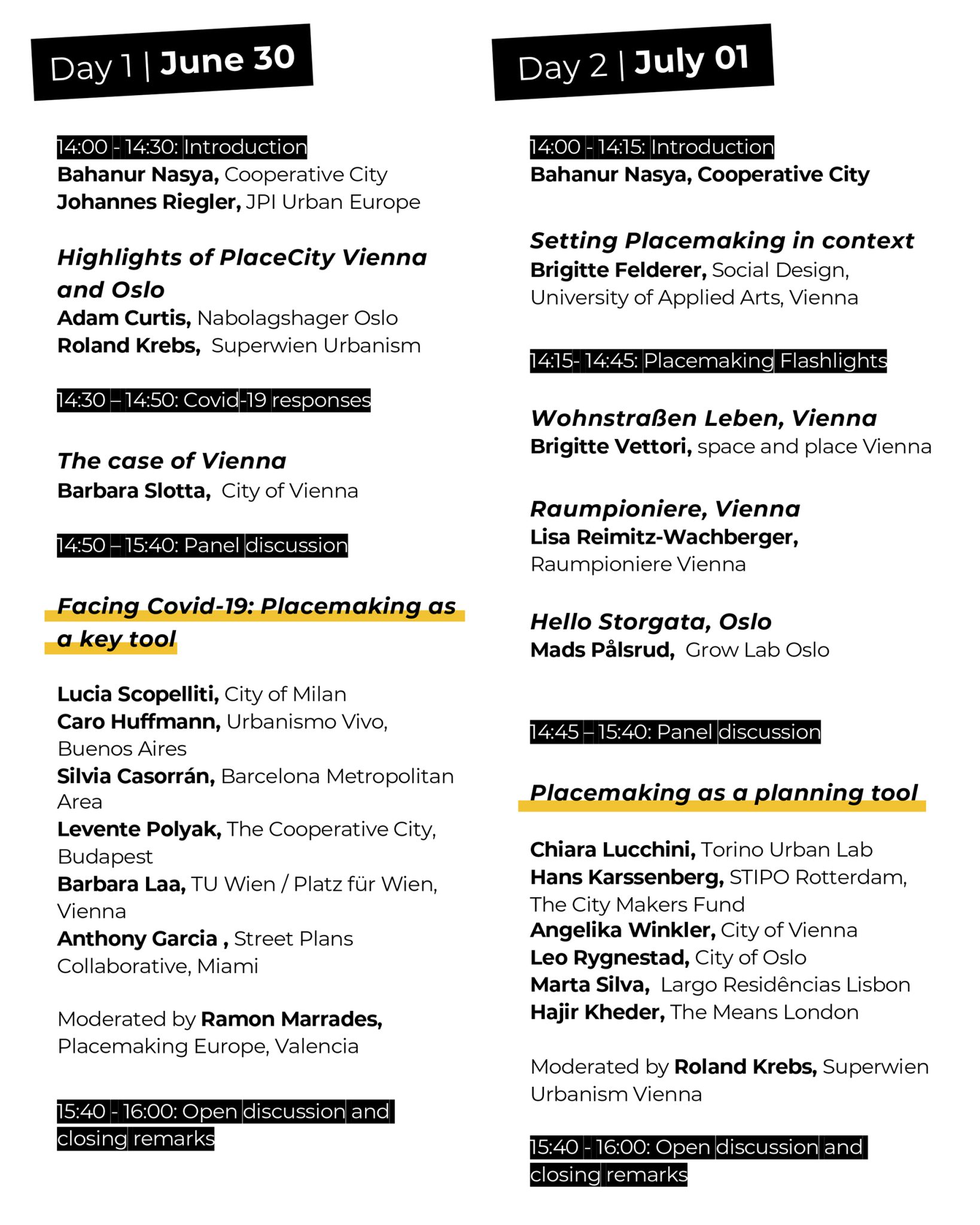

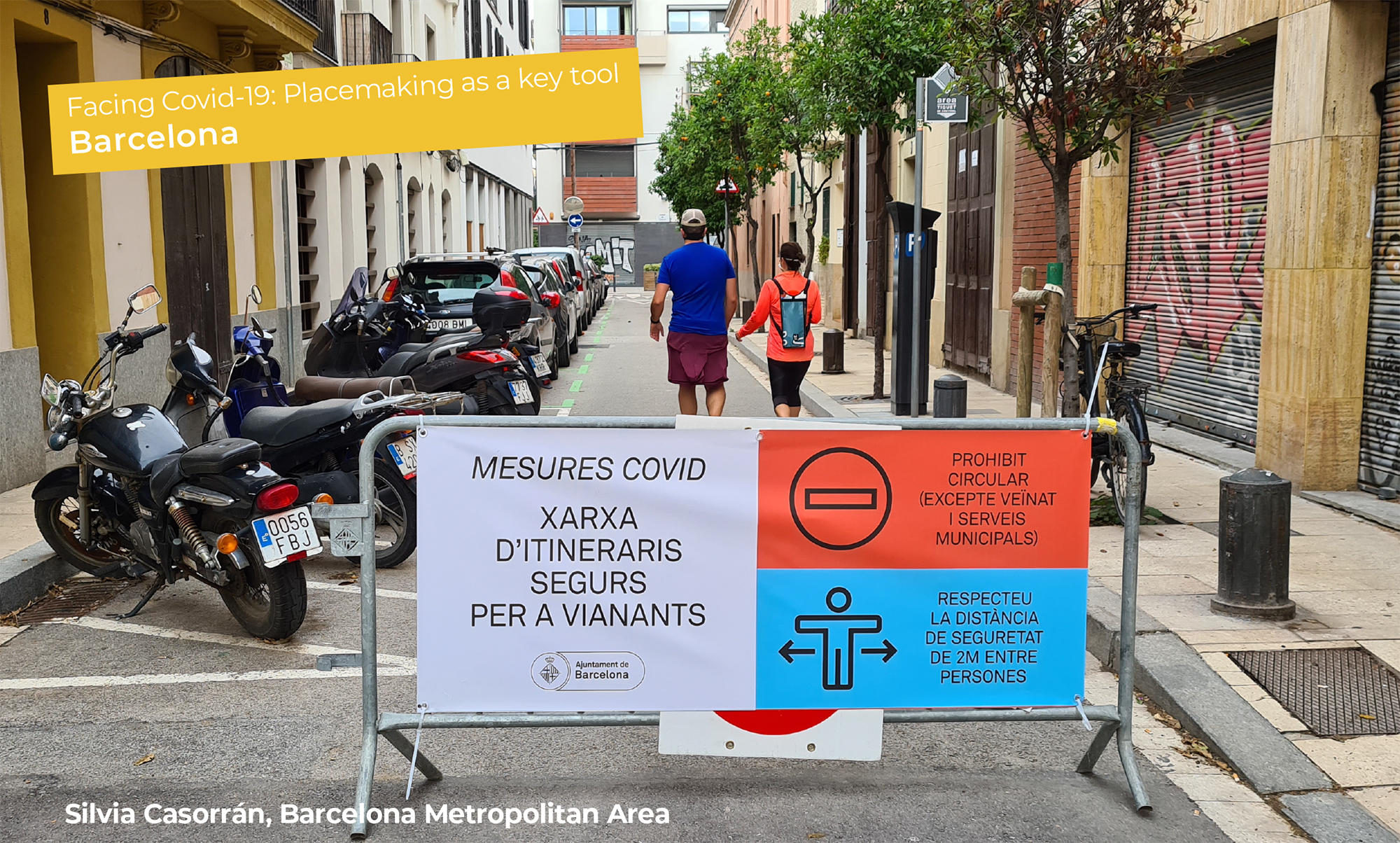

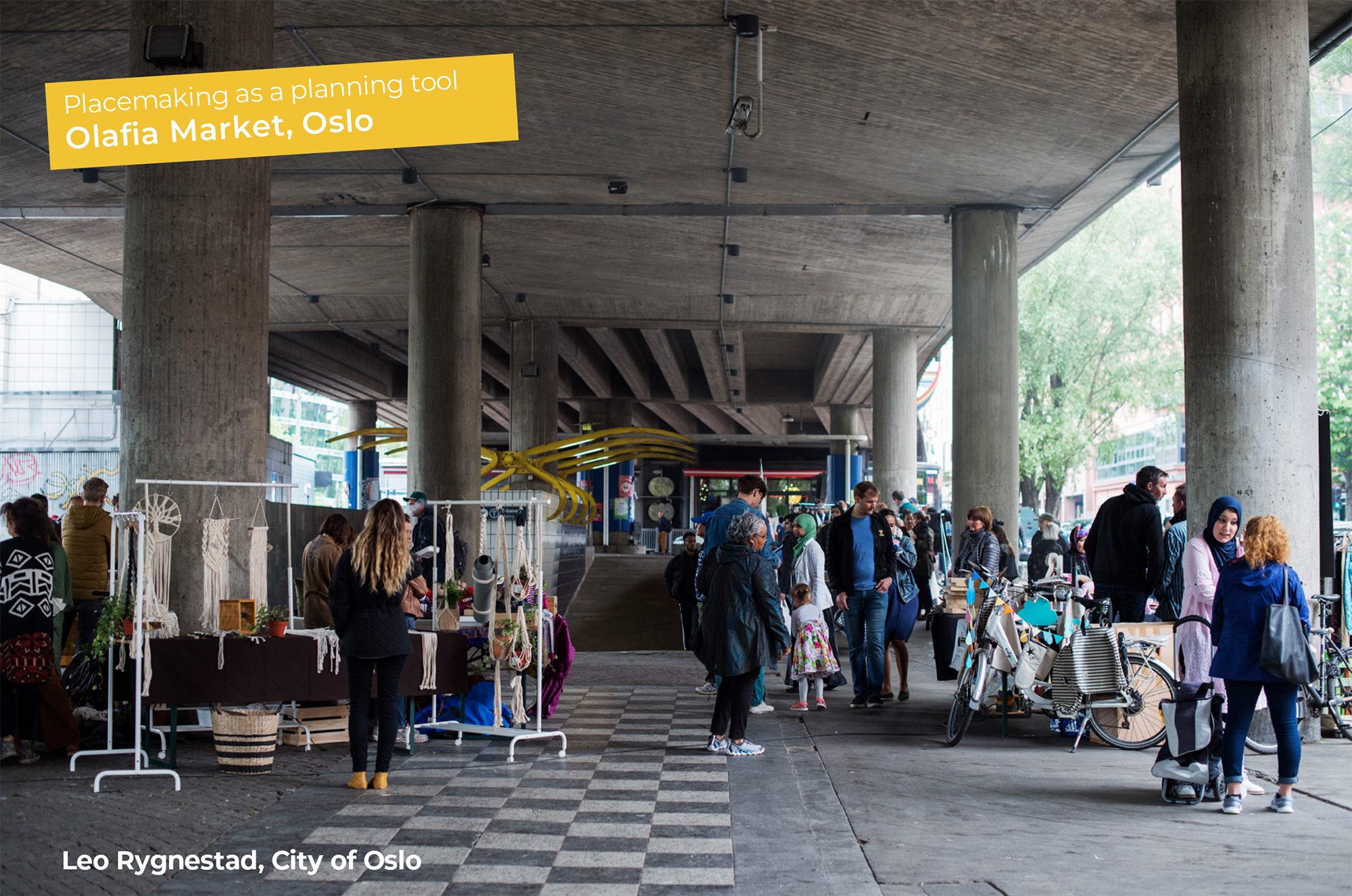
panel discussion 30.06

Lucia Scopelliti is a consultant in urban innovation, business and economic development for the City of Milan and has been working for the Municipality of Milan since 2009 in the areas of social innovation, the smart city, sharing economy and other initiatives in place to support innovative start-ups and business creation. She graduated in Economics at the Catholic University of the Sacred Heart in Rome and holds a master’s degree in Management and Innovation of the Public Administration. Lucia currently is the head of the Economic Planning Unit and also is an expert for the project Aveiro Steam City.

Levente Polyak is an urban planner, researcher and policy adviser. He has worked on urban regeneration programmes for the municipalities of New York, Paris, Rome, Vienna and Budapest. He holds a PhD in Sociology from the Central European University and taught at several universities. He is editor of Cooperative City, co-founder of Eutropian Research & Action (Vienna-Rome) and member of KÉK (Budapest). He has been an expert of the URBACT and UIA programmes. In the past years, he has been researching new organisational and economic models of community-led urban development projects and methodologies of civic ecosystem-building, co-authoring the books Vacant City (2015), Civil Város (2016) and Funding the Cooperative City (2017).
Panel discussion 1.07

Chiara Lucchini is an architect with a specific experience in sustainable urban development, policies and social/spatial processes developed within the professional and educational context (teaching at PoliTo). She holds a Ph.D. in Regional Development and Public Policies at the IUAV University of Venice. Chiara is in charge of regional development, EU programming, international learning and exchange activities at Torino Urban Lab and a validated member of the EUKN expert pool.
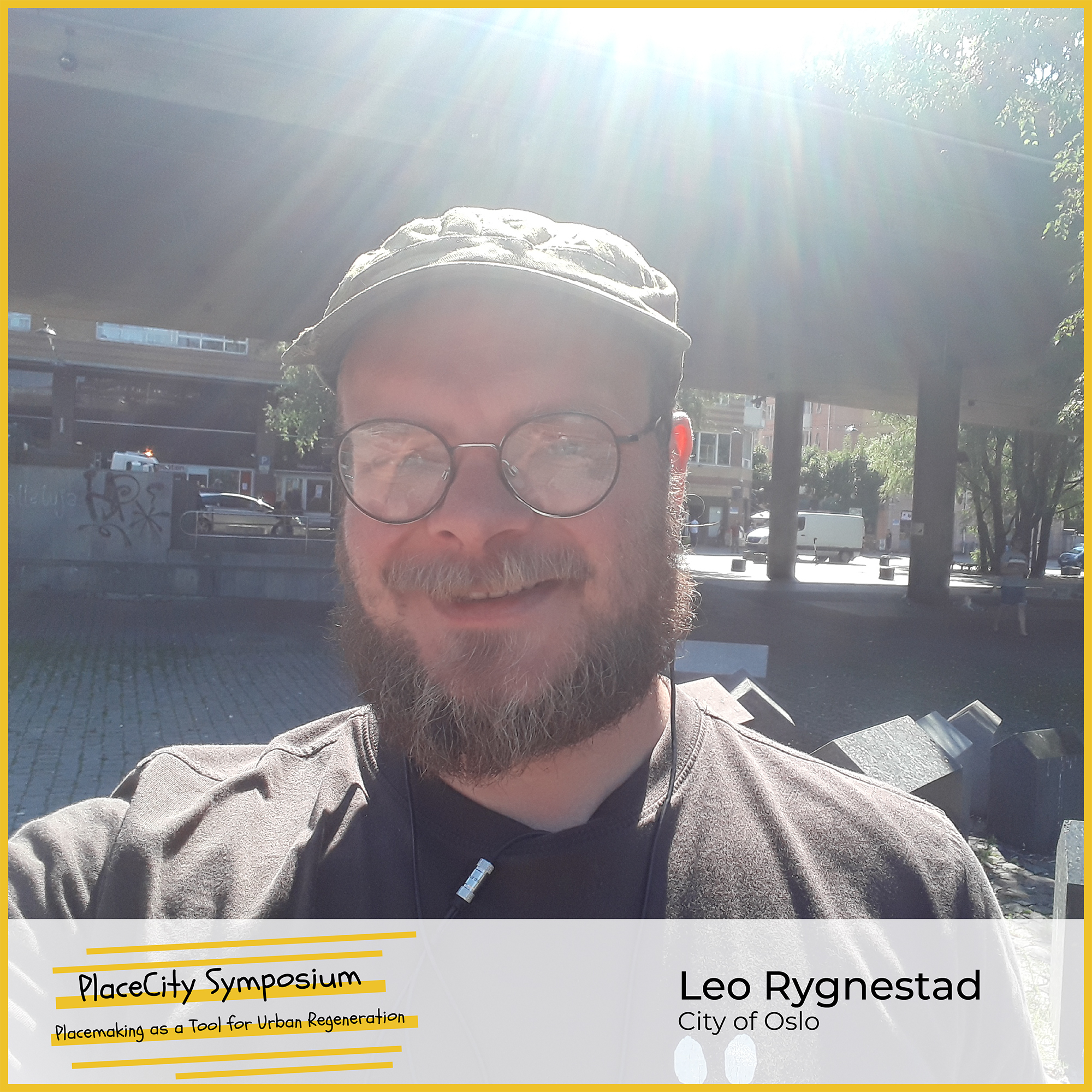
Leo Rygnestad is an urban environmental historian and urban activist and now working on social innovation for the inner city east area development programme in Oslo. He was using tactical urbanism and placemaking actively as a tool in planning public spaces for a few years and is currently developing Olafiagangen into an activity park for ages 0-20. In the frame of the project, he and his colleagues have also initiated a dialogue with a range of
neighbourhood actors with the goal of developing a place-management model for Olafiagangen.
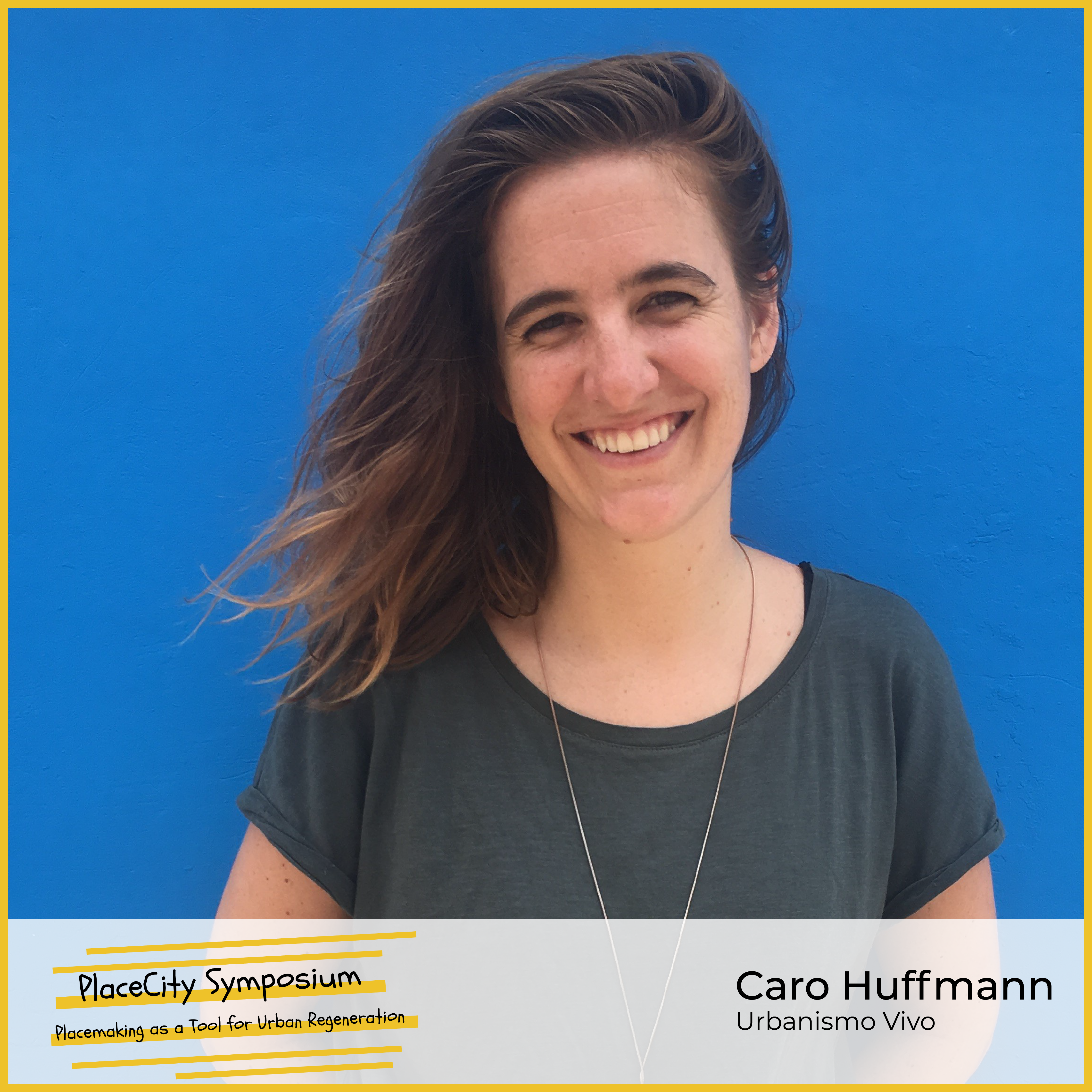
Caro Huffmann is an architect from Buenos Aires dedicated to urbanism, specialized in walkability. She holds the master‘s degree “Laboratorio de la Vivienda del Siglo XXI” from the Universidad Politécnica de Catalunya. In 2012, she founded Urbanismo Vivo, working independently in urban planning, walkability, workshops, urban interventions, urban projects and citizen participation for the private and public sectors and as an urban activist organizing walks to rethink the city we live in. She also works as a University professor in Urban Planning at Universidad de Buenos Aires.

Barbara Laa is a researcher at the University of Technology in Vienna (Research Center of Transport Planning and Traffic Engineering). She has a background in Civil Engineering, practical experience in project development and has been teaching and working on research projects at the university for more than two years. In her work, she focuses on sustainable transport systems, land use and transport interaction and urban development. She is also an activist for the citizens’ initiative Platz für Wien which demands a more equitable allocation of road space and climate action in Vienna.
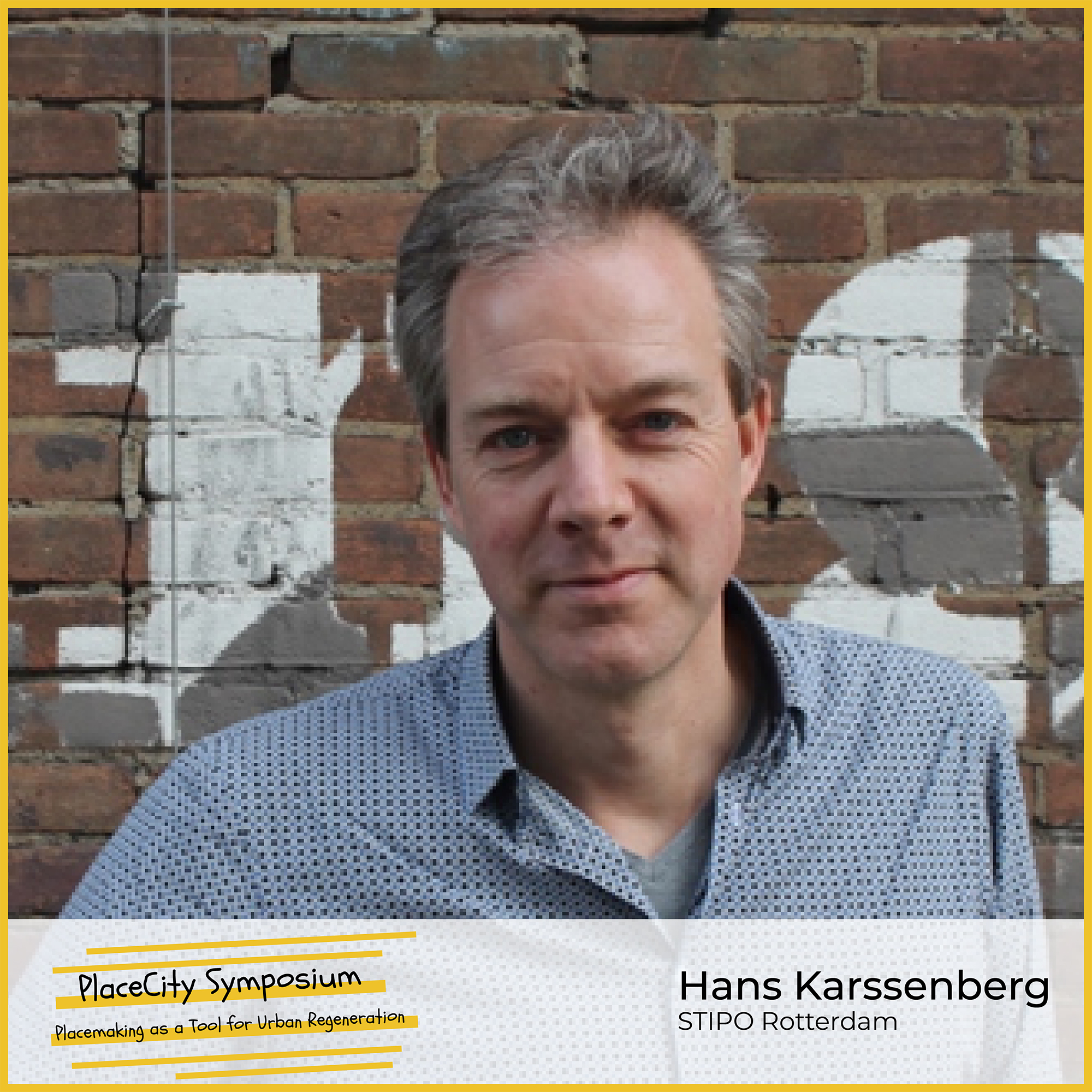
Hans Karssenberg is founding partner of STIPO, an interdisciplinary team for urban development. He has helped to build the international programs The City at Eye Level, Placemaking Europe, Placemakers Asia and PlacemakingX. Hans aims to help create better cities, with human scale and cooperative area development, strong communities, co-creating streets and places for people, place management and place-led development, connecting short term bottom-up action with long term top-down strategy. Hans is one of the initiators of re:Kreators and as a result of that has set up the first Stadmakersfonds (Investment fund for placemakers) in a collaboration between Stadkwadraat, STIPO, the Province of Utrecht and the Triodos Bank.


Silvia Casorrán works for the Barcelona Metropolitan Area and especially focuses on public transport bicycle policies. She is responsible for cycling policies in AMB and coordinates the Spanish Network for Cycling Cities. Silvia graduated in Environmental Sciences from Universidad Autónoma de Barcelona (2002), part of her studies took place in The Netherlands (Utrecht University) and in Mexico (Guadalajara University). Since 2019, she also is the Mobility councillor in Sant Marti District in Barcelona where Poblenou Superblock is located.

Tony Garcia is a principal at Street Plans Collaborative, and leads the firm’s Miami office. With over 15 years of experience, Tony is a leader in the field of urban planning, and balances day-to-day management of the firm with writing, speaking, and advocating for great streets and public spaces. He holds a Bachelor of Arts in Architecture and Urban Design from New York University and a Masters in Architecture from the University of Miami. Tony is a co-author of the globally acclaimed series Tactical Urbanism: Short-Term Action, Long-Term Change (2015) and leads workshops on the topics of placemaking, tactical urbanism, and street design.
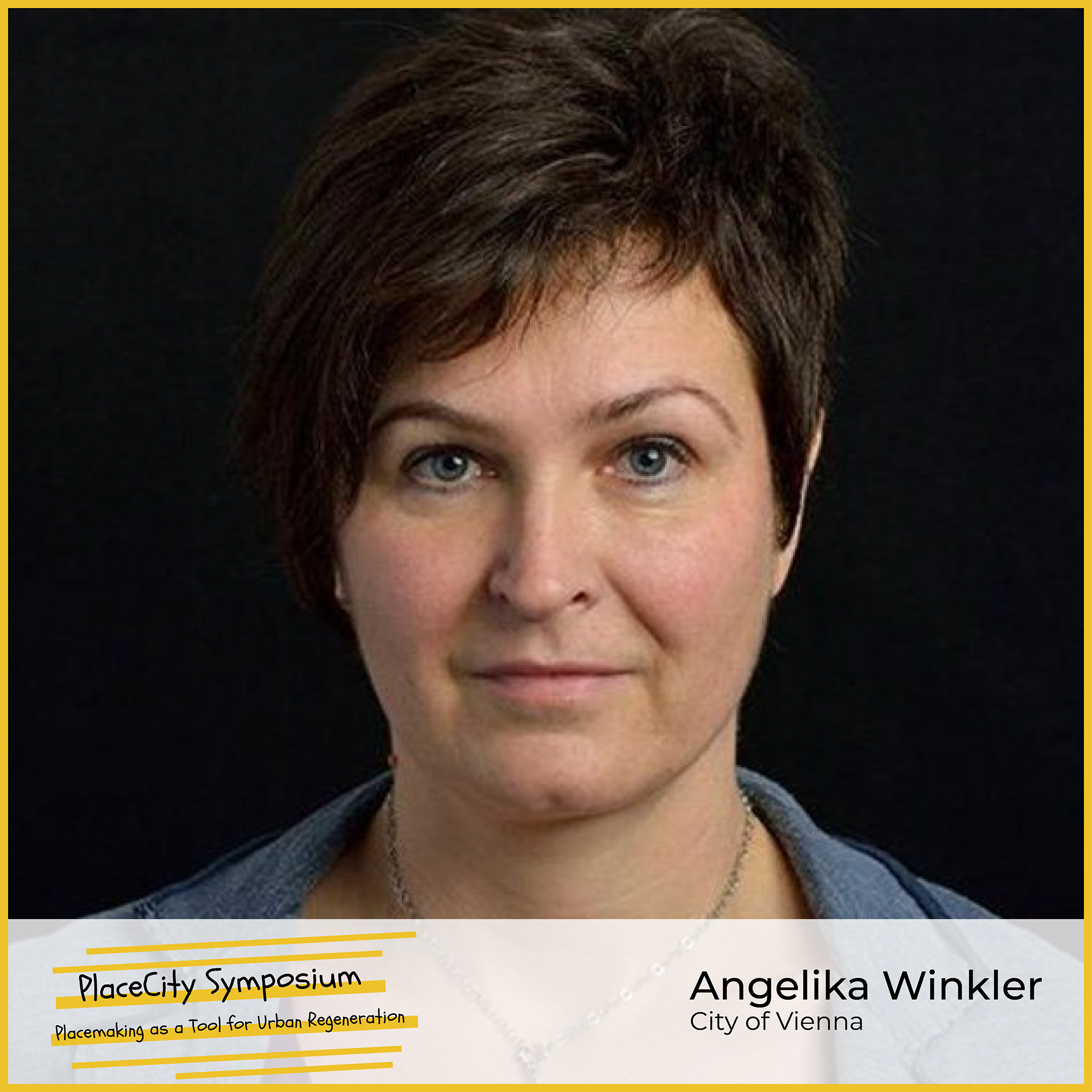
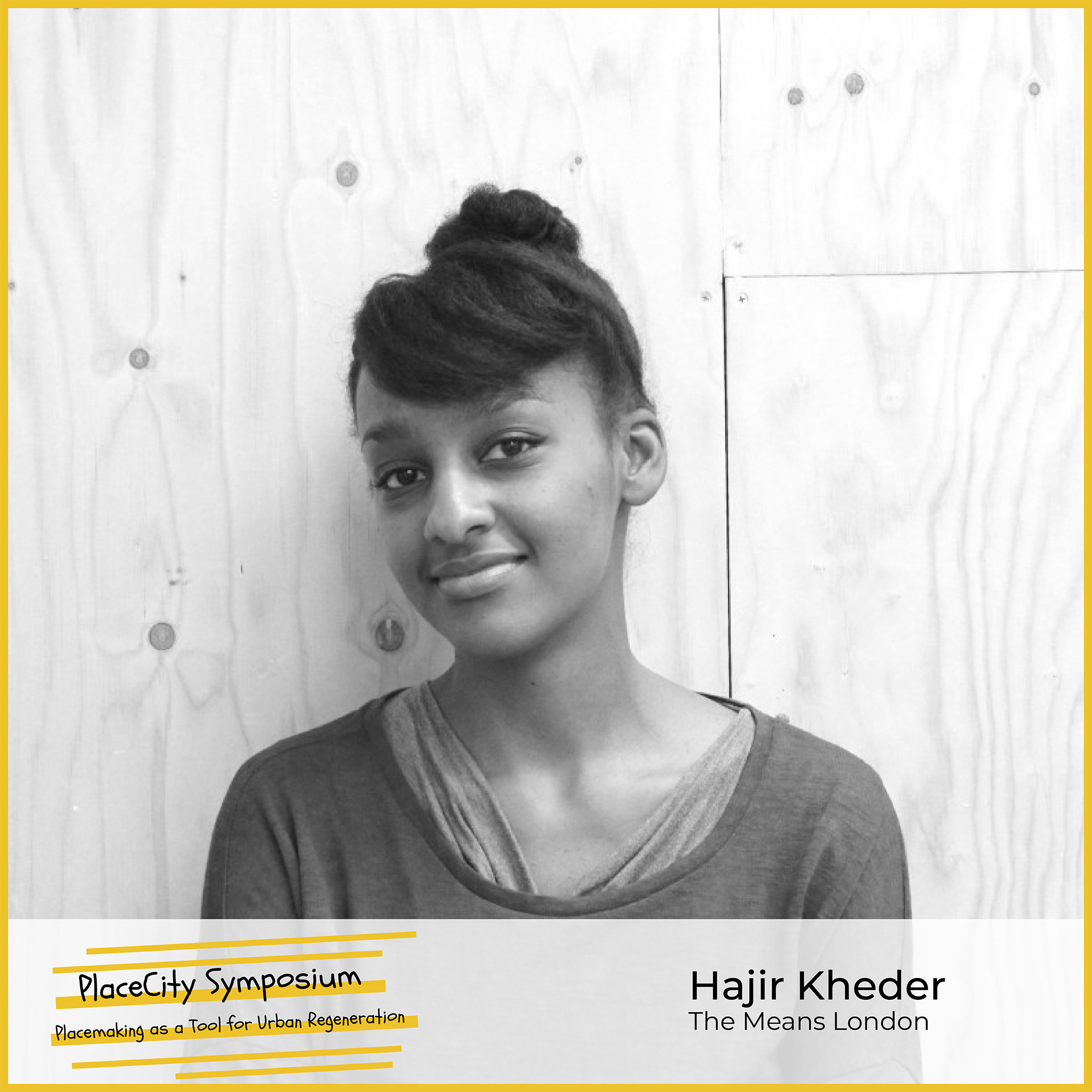
Hajir Kheder is an architect and project coordinator at The Means in London since 2016, with a particular interest in socially-engaged architectural practice and working collaboratively with communities to make better places. She regularly designs and delivers engagement and consultation strategies, and brings her design experience to the process and outcomes – from redevelopment sites in urban and rural settings to economic strategies and public realm interventions. Prior to joining The Means, Hajir acted as a Project Manager for the Canning Town Caravanserai – a project in the London Borough of Newham and continues as a member on the board of trustees for the project.
